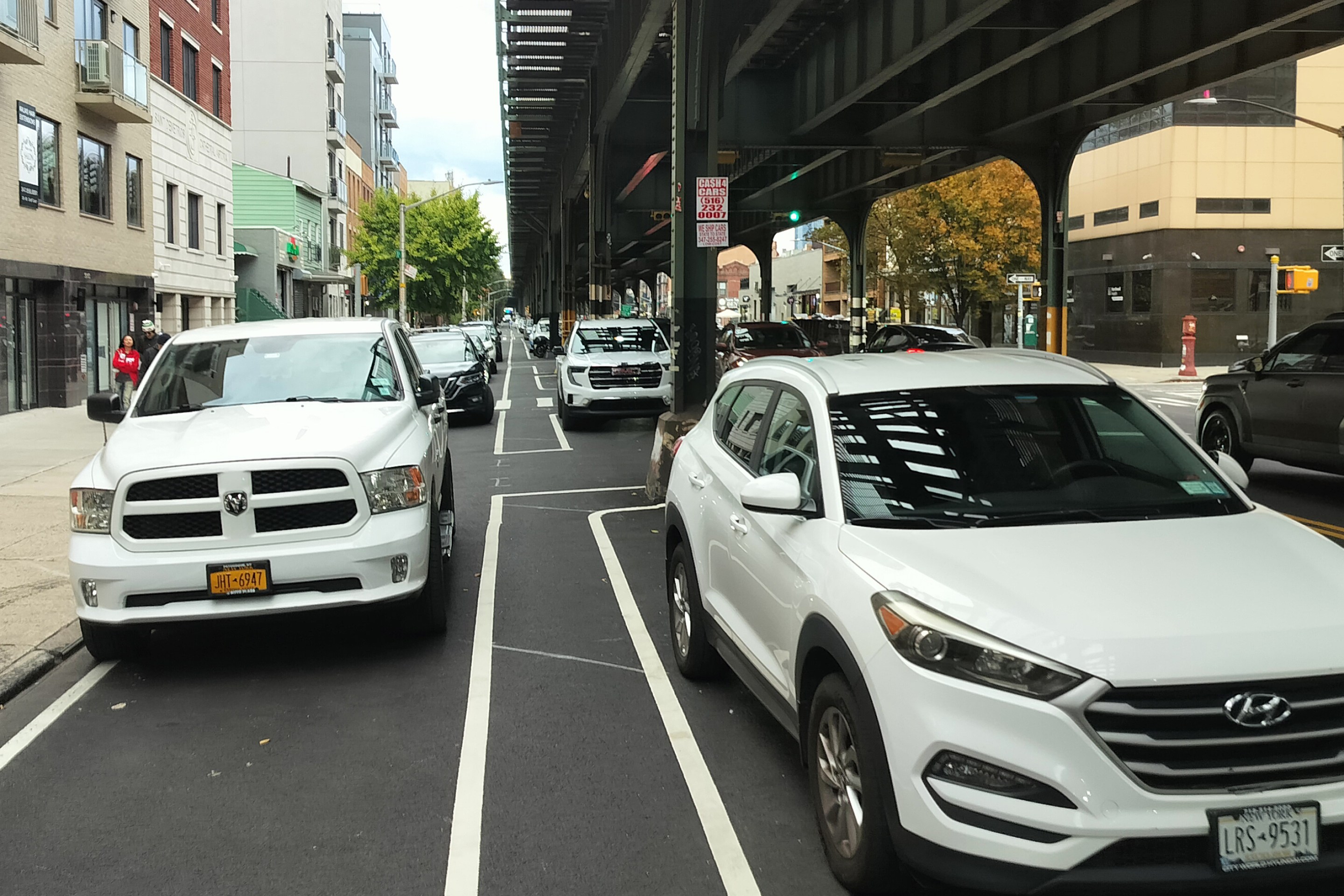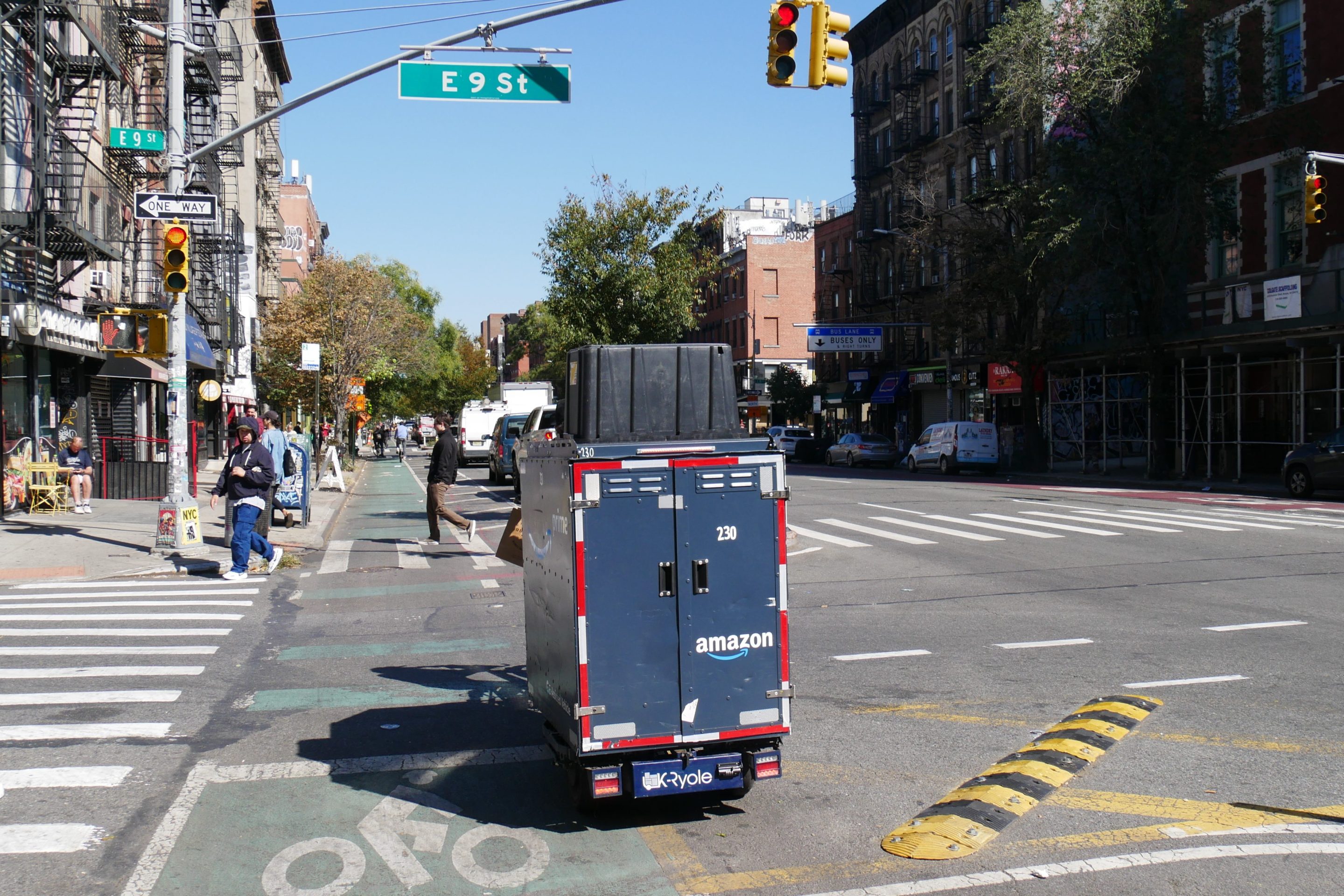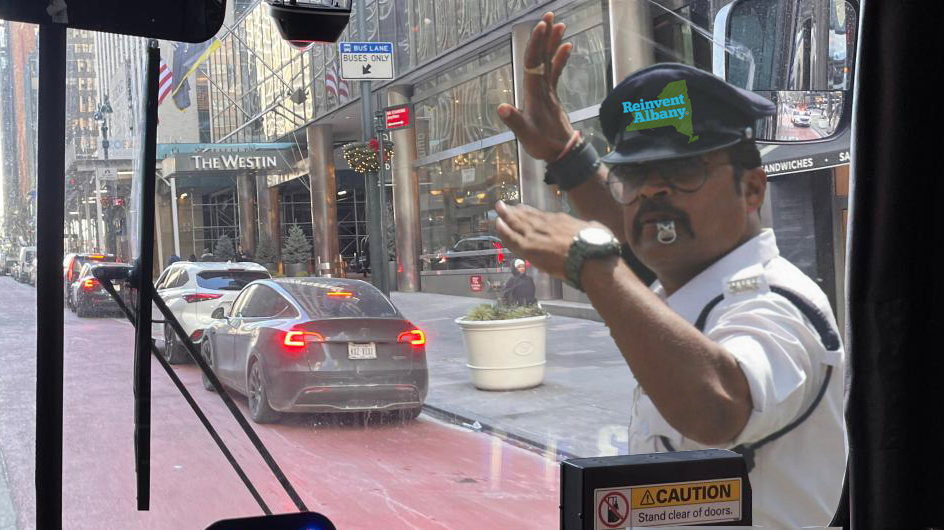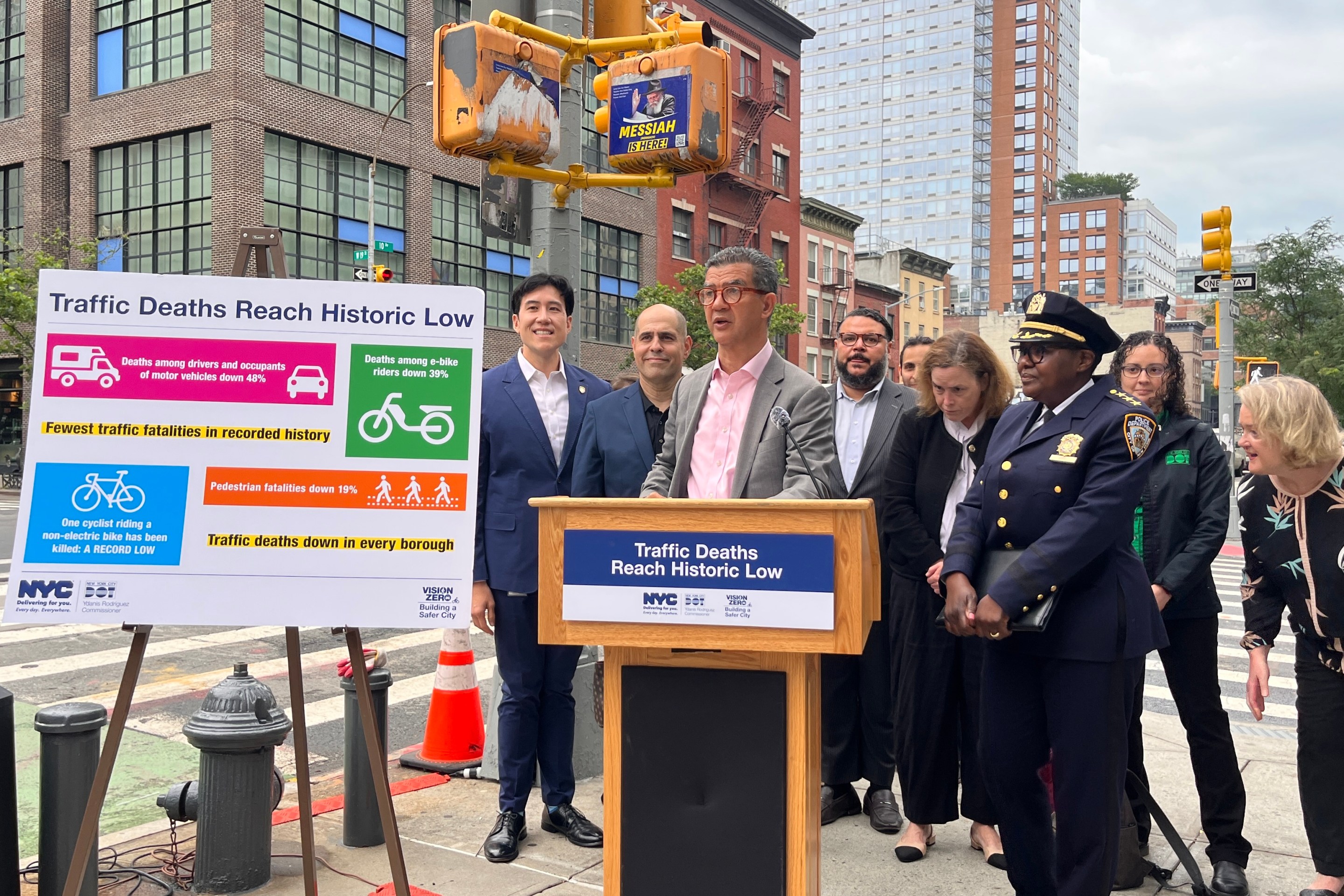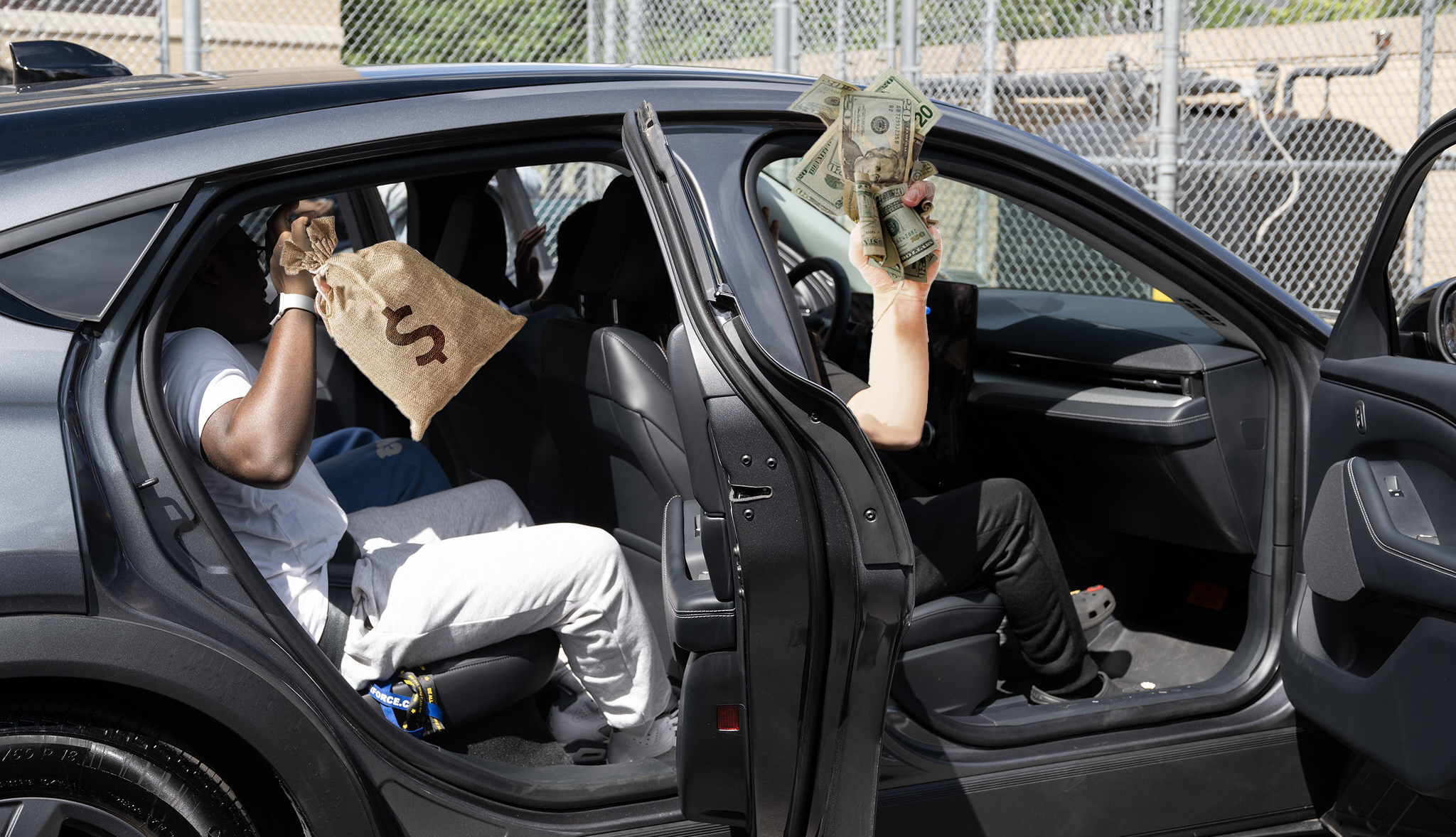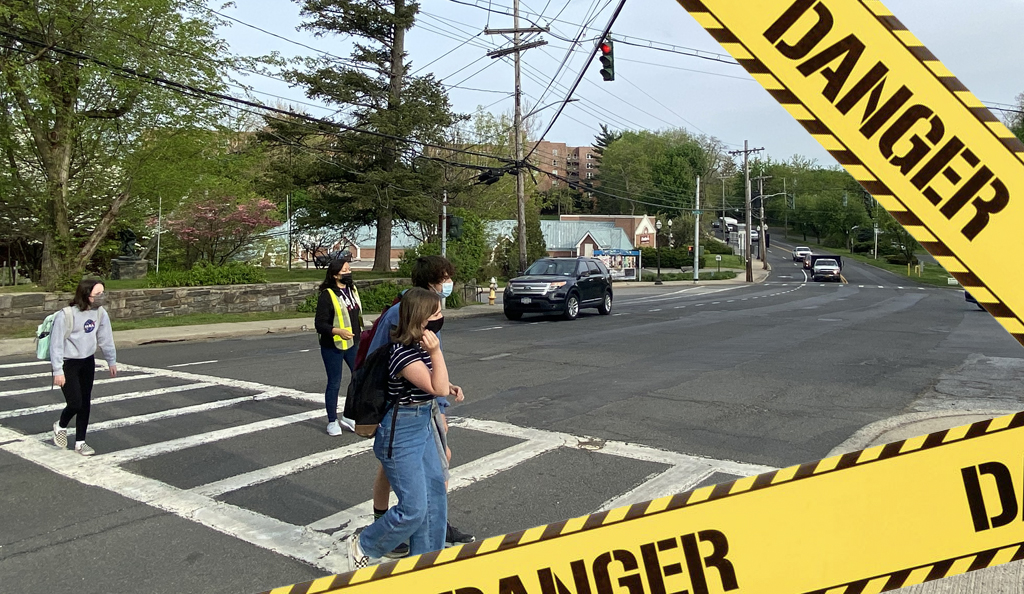New Jersey Gov. Phil Murphy is putting his own transit system at risk by failing to accept a "generous" nine-figure settlement deal to end his state's congestion pricing lawsuit and prop up the beleaguered New Jersey Transit system, sources familiar with the matter told Streetsblog.
Gov. Hochul herself told reporters on Wednesday that New Jersey was acting in bad faith during settlement talks between the Empire and Garden states.
"We've made multiple offers to settle this lawsuit. Very generous offers. I wish I could describe them to you, because you would say they're generous. I'm not at liberty to do that," the governor said. She added that her decision to drop the peak congestion toll to $9 from the original $15 "has not changed the position of New Jersey" over New York's implementation of a fee to drive a car into the most congested and transit-rich part of New York City.
The sources said that New York is offering New Jersey "in excess" of $100 million for New Jersey Transit — potentially an annual payment from the $900 million or so expected annually from congestion tolls. The money would be a boon for Murphy, who raised fares a staggering 15 percent this year due to budget shortfalls. The system has continued to struggle.
One advocate said that if Hochul is to be taken at her word, Murphy is doing a huge disservice to NJ Transit commuters, who would join their counterparts on Metro-North and Long Island Rail Road in seeing a direct benefit from congestion pricing. Currently, the MTA's commuter rail systems will each get 10 percent of the $15 billion in capital improvements that are being funded by congestion pricing (the remaining 80 percent goes to New York City Transit, whose riders include many New Jersey residents).
New Jersey drivers are expected to comprise roughly 20 percent of the tolled trips when congestion pricing begins but would provide far below 20 percent of the toll revenue thanks to credits they will receive for entering the central business through the already-tolled Lincoln and Holland tunnels. (New Jersey has also apparently turned down extending the credit for drivers entering the congestion zone via the George Washington Bridge.)
Riders Alliance Executive Director Betsy Plum called Murphy's alleged reluctance to make a deal "a stubbornness tax" — one that his transit riders will be paying.
"It's really interesting to make [NJ Transit] riders continue to deal with an unreliable, increasingly expensive system when they could have one that's much better," Plum said.
One source said that in turning down the settlement offer, Murphy risks opening a war with New York State over the Port Authority, one that he has threatened in the past by grinding regular business at the bi-state agency to a halt.
"There is real money on the table for New Jersey Transit trains and buses and the PATH train," they said. "Those are carrots. But there is a substantial stick here, which is New Jersey really wants a fancy new Port Authority bus station, and that might get a lot more difficult if we don't have congestion pricing."
A spokesperson for Murphy said that the Garden State governor was "respectfully declining" to comment on the question of the settlement talks.
Area environmental activists took aim at Murphy for possibly torpedoing his own legacy as a green gov.
"Obviously the lawsuit is myopic, and if successful, it would be a devastating blow to the region's economy and transportation system," said Justin Balik, the state program director for Evergreen Action. "It contradicts the climate legacy of the Murphy administration. It seems as if New Jersey is directly stalling critical improvements for public transportation in other measures that would be quality of life improvements for its own residents."
Hochul's comments on Wednesday came a mere 18 days from the start of the nation's first-ever congestion pricing program on Jan. 5. There are still a number of court cases that could stop the toll, but the New Jersey case, which was filed last July and went through two days of oral arguments in April has been the longest-running legal battle over the traffic toll.
On Friday, U.S. District Court Judge Lewis Liman will hold a hearing on a request for a preliminary injunction brought by the Trucking Association of New York and a coalition of city-based anti-congestion pricing organizations. Liman has already ruled for the federal government and MTA on most of the merits of the city-based anti-congestion pricing suit to prevent congestion pricing from starting.
And on Monday, a federal judge will consider a different request for a preliminary injunction brought by the county executives of Rockland and Orange counties. The town of Hempstead has also asked a federal judge for a temporary restraining order, but the date of that hearing has not been set.

